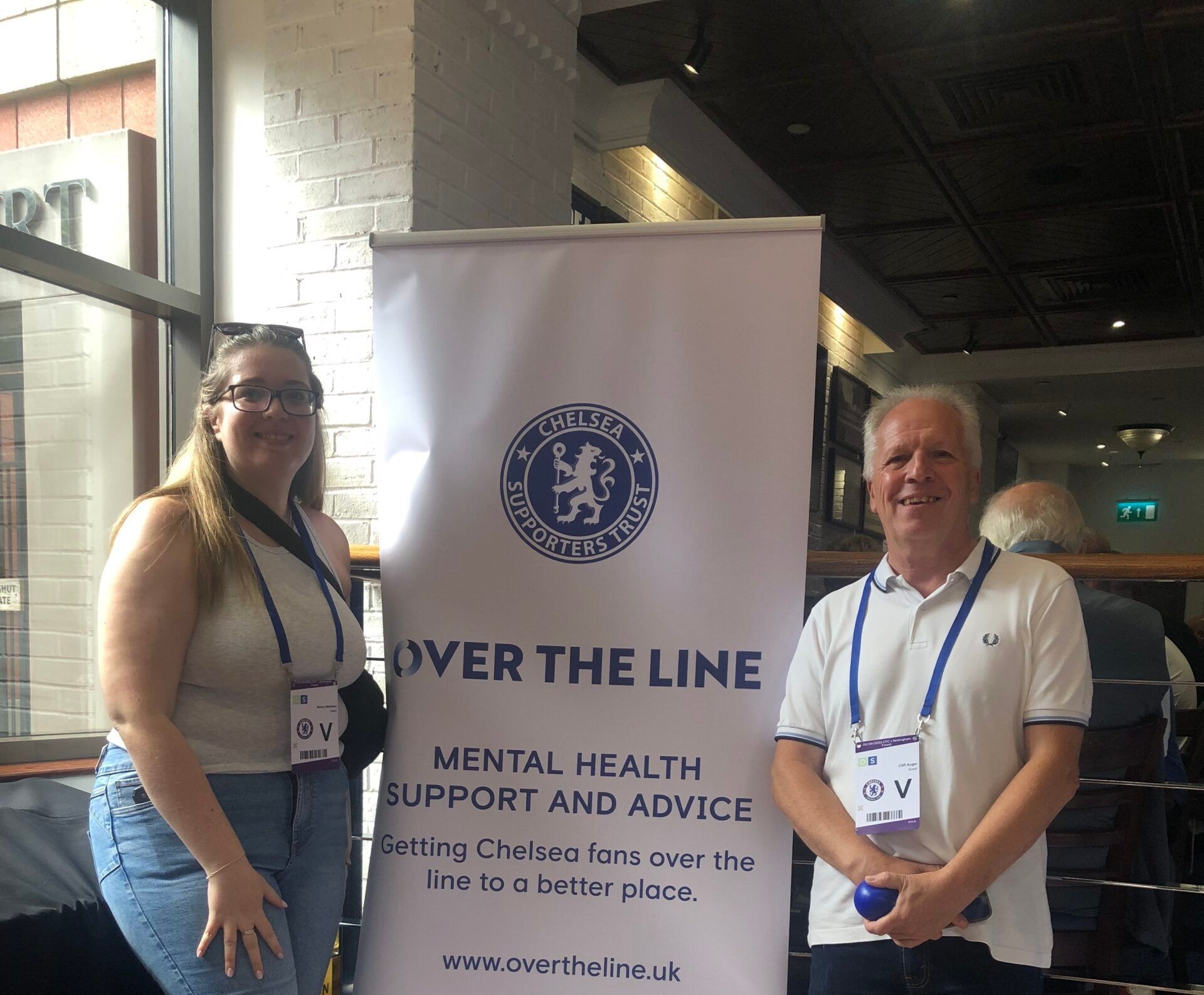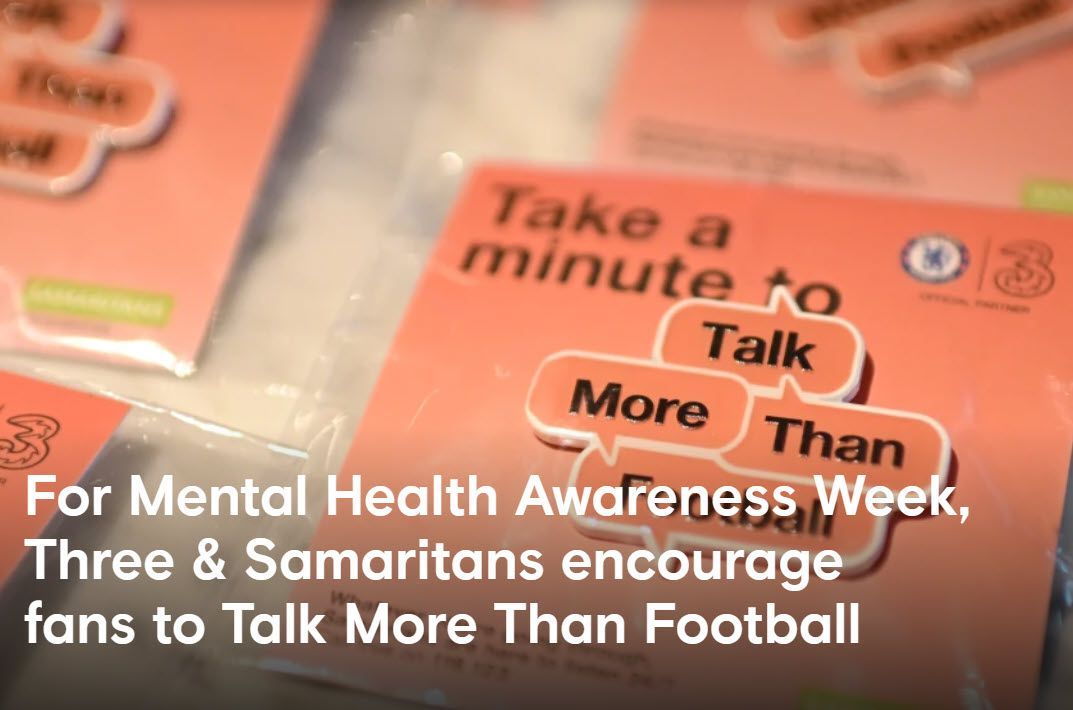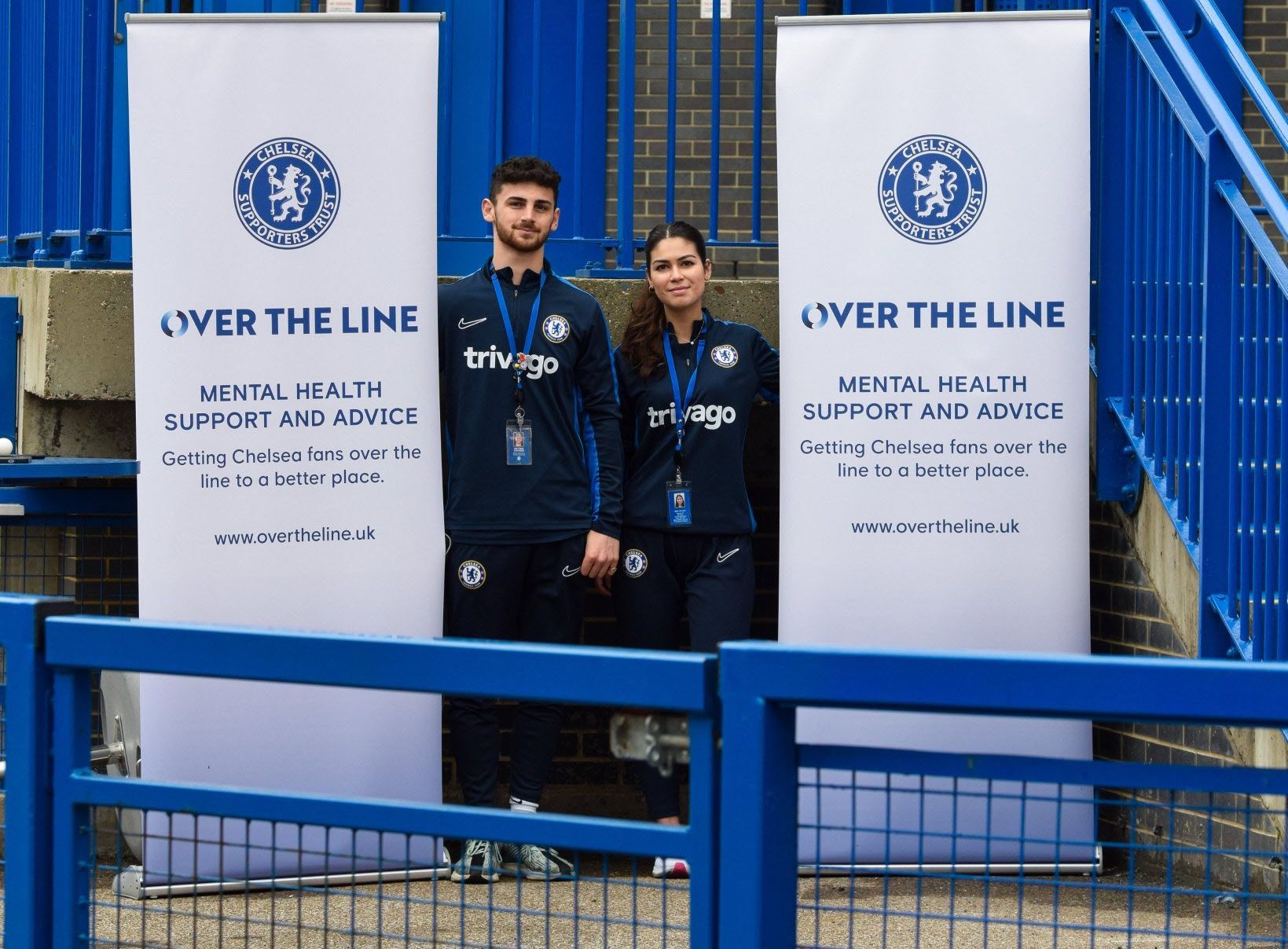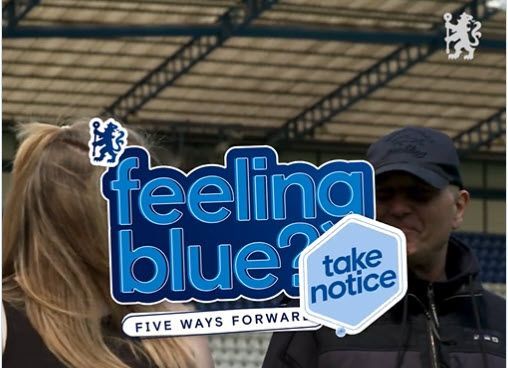OTL Survey
Over The Line Mental Health Survey
Over The Line was launched as a consequence of what we believe is a growing need for mental health support within the Chelsea community. Chelsea Supporters Trust created the initiative to provide a space for fans to explore and de-stigmatise their mental health issues and to find resources to help them. A theory exists – it is probably more than a theory – that a certain demographic (mainly middle aged men) struggle to cope with mental health issues and even to some extent ignore or avoid dealing with them.
We wanted to try to gather some data from supporters about their mental health and their attitudes towards it, so we launched a survey to try to discover more about the situation among our supporters. We would like to thank everybody who took part. Below, we take a look at some of the key findings of the survey which we hope will help us tailor our activities and services as we go forward.
Summary
The survey took place over 3 days in mid-August 2021 and was simple in its construction. These findings are not wholly scientific and we would not pretend that they are. Participants were invited to take part via social media channels related to Chelsea FC and fan accounts. This is not scientific exercise and participants are entirely self-selecting. However, the survey was entirely anonymous and sought to address a few key questions;
- How many fans were suffering with symptoms of mental health difficulty?
- How profound were these issues?
- How many of the respondents recognised that they may have a mental health problem?
- How many were unable or unwilling to seek help?
At this point we would warn readers that there is discussion of suicide in this report.
The respondents
There were a total of 440 respondents to the survey.
90% were male
10% were female
The age group of the respondents was:
| Answer Choices | Responses |
|---|---|
| Under 18 | 1.62% |
| 18 - 25 | 14.09% |
| 26 - 40 | 22.40% |
| 41- 55 | 27.02% |
| 56 + | 34.87% |
NOTE: given the self-selecting nature of this survey and the relatively small cohort of women respondents, we treat some of the outcomes with caution with respect to the female cohort as they relate to the wider acute mental health picture among women. Consequently, not all metrics are reported by gender.
How people are suffering
We began by asking respondents a multiple choice question that explored whether they suffered from any of a list of several different symptoms such as anxiety, depression etc. The list and the answers are below in the table.
| Answer Choices | Responses |
|---|---|
| Anxiety | 58.33% |
| Depression | 40.43% |
| Stress | 60.80% |
| Difficulty controlling emotions | 23.15% |
| Relationship issues | 22.22% |
| Anger issues | 14.20% |
| Drug or Alcohol abuse | 12.35% |
| Low self-esteem/confidence | 45.06% |
| Bereavement & loss | 9.57% |
| Panic attacks | 12.35% |
| Self-harm | 2.16% |
Among the whole group, the most common symptom was stress, closely followed by anxiety, low self esteem and depression.
The knock on effects of these issues on the daily life of fans was most markedly in suffering from sleeplessness (51%), inability to focus on tasks (42%) and difficulty dealing with problems (37%). Many fans found that they had developed a short temper (36%) and 29% said they were getting upset more easily.
| Answer Choices | Responses |
|---|---|
| Difficulty dealing with problems | 36.75% |
| Sleeplessness | 51.32% |
| Physical symptoms | 21.85% |
| Difficulty with relationships | 27.48% |
| Unable to focus attention on tasks | 42.05% |
| Get upset easily | 29.47% |
| Short temper | 36.09% |
There are countless ways to divide these results as per age and gender but some highlights to note;
- The highest symptom among women was anxiety whereas for men it was stress
- Low self esteem was high among men in general but highest among those in the 26-40 age group (38%) followed by the 18-25s in which it was 35%
- Among all women respondents the total for low self esteem was 40%
- Depression was most common amongst men in the 41-55 age group at 31%
- Around 11% of men and 6% of women suffered alcohol or drug abuse issues.
Among all respondents, the average number of individual symptoms was 2.1 among men and 2.7 among women.
Do people consider themselves to have a mental health problem?
Having established the extent and range of issues that people were suffering from, we asked respondents to tell us if they considered themselves to have a mental health problem and this is where things get more complex and interesting.
Despite answering in the affirmative to some serious and debilitating difficulties, many of our respondents - 62% - did not believe or consider themselves to have a mental health problem. Of those who said they did not consider themselves to have a mental health problem, the average number of symptoms was 1.6 per person. Some snapshots of this:
Of those men who did NOT believe they had a mental health problem,
- 47% said they suffered stress
- 28% suffered anxiety
- 25% said they suffered from low self-esteem
- 12% said they had difficulty controlling their emotions
We looked further into the group who DID NOT believe that they were suffering from mental health problems and found that 13% of this cohort were experiencing 3 or more symptoms. Those 56+ were the most common among this group.
Suicide
In order to try to measure the acuteness of mental health issues, we asked those fans who said that they believed they had a mental health problem (38% of the entire sample group), about suicide.
52% of this cohort (who recognised they had a mental health problem) said they had considered taking their own life (this represents 13% of the entire sample group)
- 85% had considered the method they would use to take their own life
- 21.5% said they had made plans/preparations (3% of the entire sample group)
- 21.5% said they had made at least one attempt (3% of the entire sample group)
The age category most commonly considering taking their own life was 26-40 bracket at 34%, followed by 41-55 at 28%. However, the most common age for at least one attempt to take their own life was 41-55 at 43% followed by 28-40 at 36%
Getting and seeking help
Again, of the cohort who said that they DID believe they have a mental health problem, we explored their efforts to get help for these issues.
34% said that they had never spoken to someone or sought help for their issues with 66% saying that they had reached out in some way. Extrapolating those who had considered taking their own lives, we found that 28% had still never sought help.
Of those who had reached out for help, on multiple choice questions, the resources used were;
- GP - 62%
- Psychotherapy/counselling -71%
- Friends/family - 65%
- Samaritans/Shout etc - 11%
We explored with those who had not sought help or discussed their problems WHY they had not taken steps. Again this was a multiple choice question with more than one possible answer;
- 20% said they felt it was embarrassing and a sign of weakness
- 47% said they were afraid to admit their problems to their friends or family
- 64% said that they did not know where to begin
Among comments made by respondents, the most common thread was that individuals believed they ought to be able to deal with their own problems. ‘I thought it was up to me to deal with my problems’/’I feel I should be able to deal with them myself.’
Conclusions and brief analysis
The survey, self-selecting and with a narrow constituency of just Chelsea fans is not scientific. As an anonymised survey, we are confident in the veracity of answers given to some difficult questions, but we do not propose that these results reflect the mental health situation in wider society. It offers us a snapshot of how Chelsea fans, the group that Over The Line was set up to help, are currently coping with – or not – their mental health issues after a prolonged period of difficulty during the pandemic.
Among the key conclusions that we can draw from this survey is that admitting or recognising a mental health problem continues to be difficult for many, despite how a person may be feeling or suffering. It may also be that individuals simply do not recognise what a mental health problem is, that things have to be critically or life-threateningly bad in order for a person to feel that they qualify for that description and thus find worth in seeking help. Despite suffering quite acute symptoms such as anxiety and depression, low self-esteem and other serious and debilitating symptoms, 63% of all those who completed the survey do not consider themselves to have mental health issues. This is despite an average 1.6 symptoms per respondent being suffered. This may indeed be part of the process whereby people often believe such difficulties are an unavoidable part of life. However, it becomes more of a curiosity when one considers that 22% of respondents who do not believe they have mental health problem suffered from 3 or more debilitating symptoms.
All of those we asked about suicide had stated that they believed and had recognised that they had a mental health problem, but a noticeable number (28%) of those who had considered taking their own lives had still not found a way to reach out. It continues to be necessary for the mental health community to place more importance on helping people understand just what constitutes a 'mental health problem’, to put it into more relatable contexts, and to help people distinguish between severe mental disorders/illness and poor mental health and wellbeing. We would also recognise that this figure regarding seeking help may have been somewhat affected by the pressures on the already challenged mental health system as a result of the pandemic, however, we should also note that our question related to whether or not the respondents had sought help in the first place.
We were startled to find that of people who had confronted and accepted their mental health issues, a significant number had contemplated taking their own lives. Over 50% said this had been considered – and a figure of 13% for the entire respondent cohort is worrying. Even more so that many of those who had contemplated taking their own lives had gone on to make plans to do so and to make at least one attempt (21% of this cohort and 3% of the entire survey sample group)
It is important to note that the majority of those who did accept that they have a mental health problem HAD reached out for help and this is encouraging. However, besides the common feelings of embarrassment or stigmas about reaching out, the biggest barrier to seeking help among those who had not done so was that they did not know where to begin (64%). Over The Line is therefore a service that has come at the right moment and will continue to help those who do not acknowledge or understand their own mental health to do so, as well as offer practical signposting to services that can help them begin their journey to a better place.
August 2021









